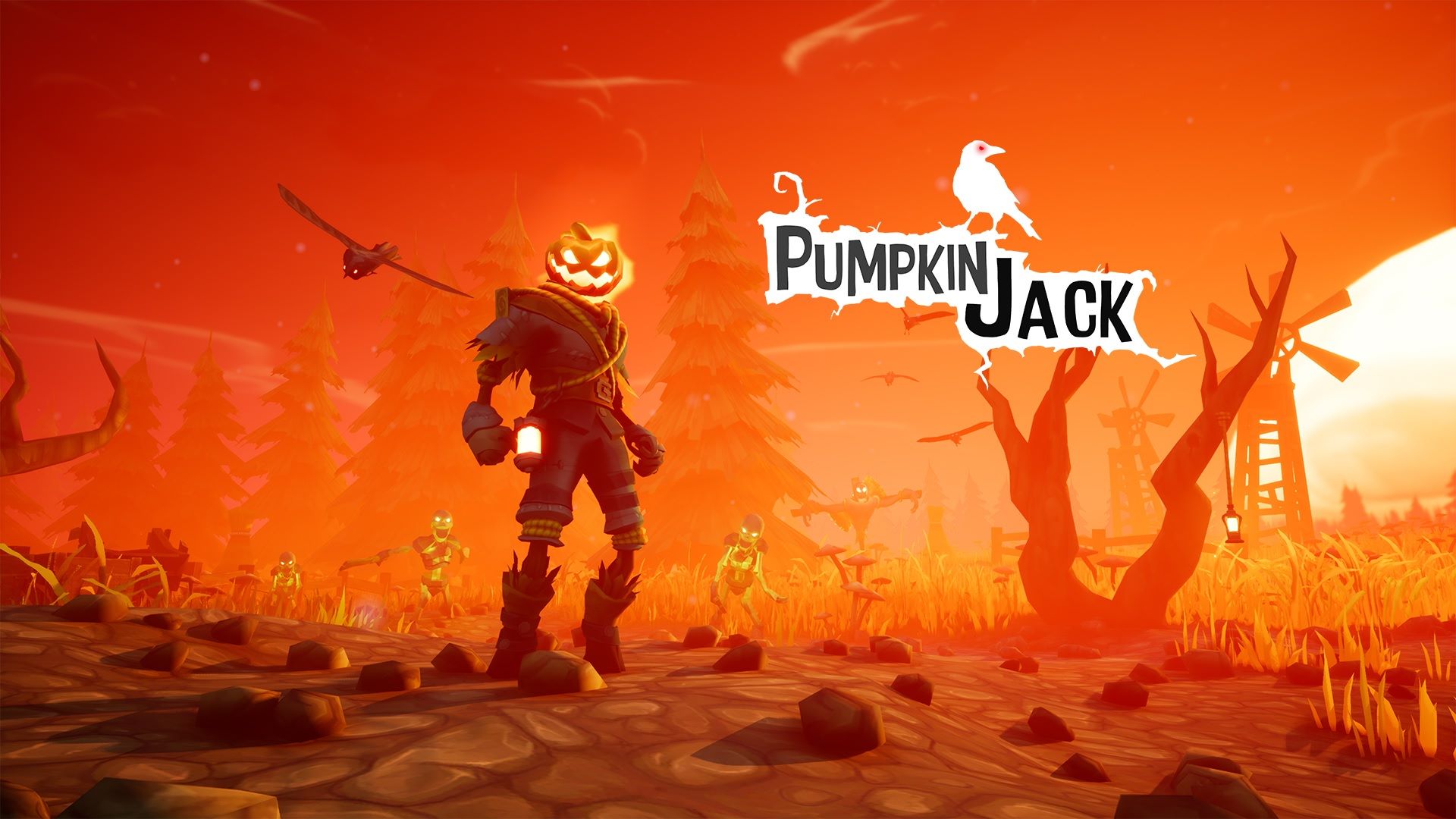
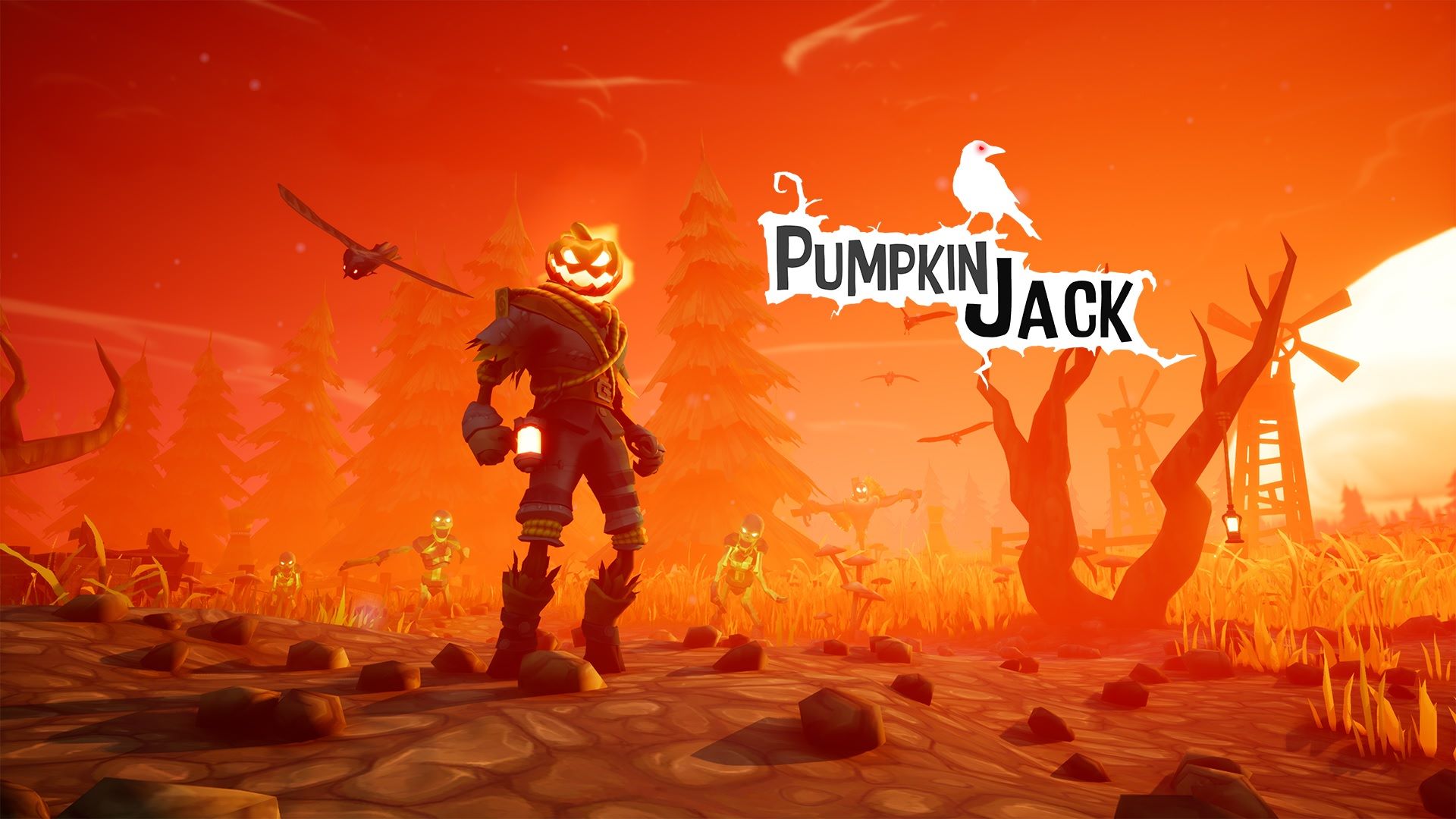
It can be a lot of fun to be the bad guy. You get to push around the locals, kidnap princesses, and maybe even raze entire villages. Pumpkin Jack would have you believe you are playing as a badguy who could get into all kinds of mischief, but the reality is Jack is no more a villain than any other 3D platformer protagonist.
The opening narration openly states that Jack was a master con-man in life, and upon his death became an extension of the will of the Devil. Jack is resurrected as a living scarecrow and is set loose to defy the heroic wizard, because the Devil is simply bored- that’s all.
Naturally, the narrative is rarely the reason why anyone would pick up and play a 3D action game such as Pumpkin Jack. What brings the boys to the yard is the gameplay, but it is a shame that this game in particular fails to live up to the premise of playing as a villain. Jack’s gameplay is generic, and is interchangeable with any kind of 3D action.
Pumpkin Jack
Developer: Nicolas Meyssonnier
Publisher: Headup Games
Platforms: Windows PC, Nintendo Switch, PlayStation 4, Xbox One (Reviewed)
Release Date: October 23, 2020
Players: 1
Price: $29.99
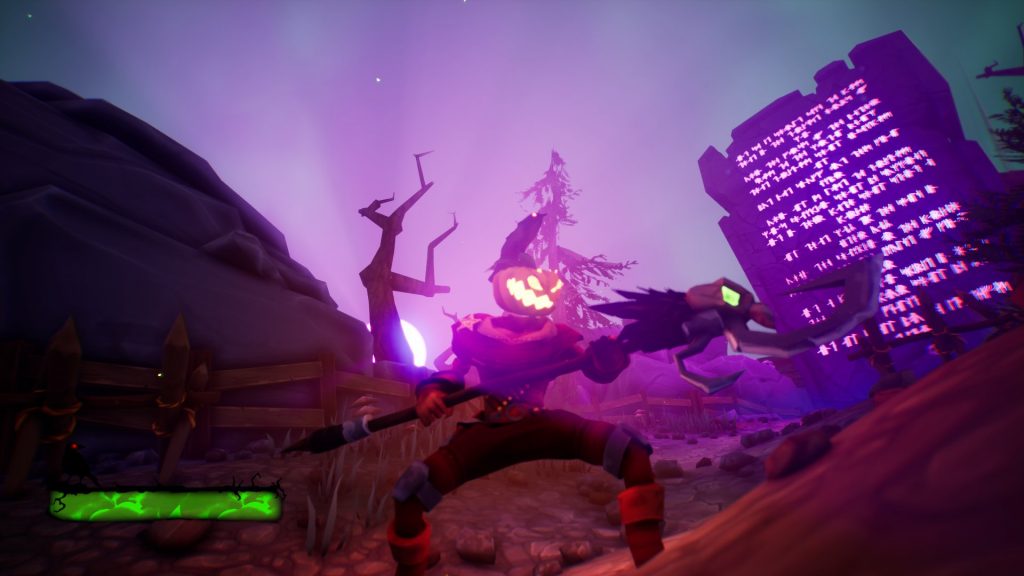
Pumpkin Jack does not make good on its promise of playing as the Satan’s helper. Early on the developer even manages to call themselves out on this by pointing out that Jack’s main enemies are generic skeletons and ghouls. He should be fighting villagers with pitchforks and torches, exorcists and Templars; not creatures like him.
He does go up against basic soldiers, but an amusing cutscene shows that they are disinterested in him and are basically attacking anything that moves on the battlefield. Sadly, there is no cohesion with Jack and his connection to the entire game. He could be swapped out for anyone and it wouldn’t make a difference.
Obviously, Pumpkin Jack is inspired by MediEvil. What this game gets wrong is character. Sir Dan worked because he was a charlatan buffoon in life who has to prove himself in undeath. It’s his chance for redemption and his desire to not be remembered as a failure. It is something people can connect to and understand.
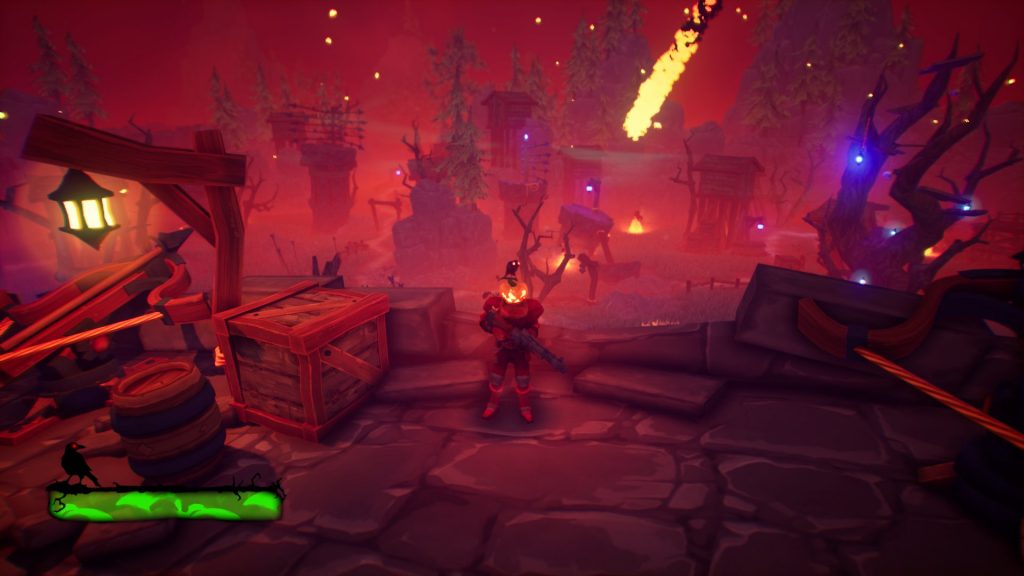
Jack is very generic as a character. He does not display any of the diabolical traits the narrator claims, and is always doing what he is told by NPCs. When he talks, he comes off as a flatly written sarcastic jerk. He does not have much presence, and his lack of personality clashes with his colorful and striking design.
Pumpkin Jack is mostly made by one person- and that is impressive. The developer’s priorities were in making the platforming satisfying, and making appealing level design. The narrative was unfortunately also a priority, but the developer was woefully unprepared to give Pumpkin Jack what it needed to work.
There are frequent dialogue text boxes, all of which are boringly written. The most challenging aspect of Pumpkin Jack is fighting the urge to skip all of the text because of how dull the conversations are.
Even if these scenes had voice acting, it wouldn’t make the scenes more entertaining. Every single conversation is constructed for efficiency. Blocking done with the basic, shot-reverse-shot back and forth. There is no style at all in these scenes, and they contribute nothing.
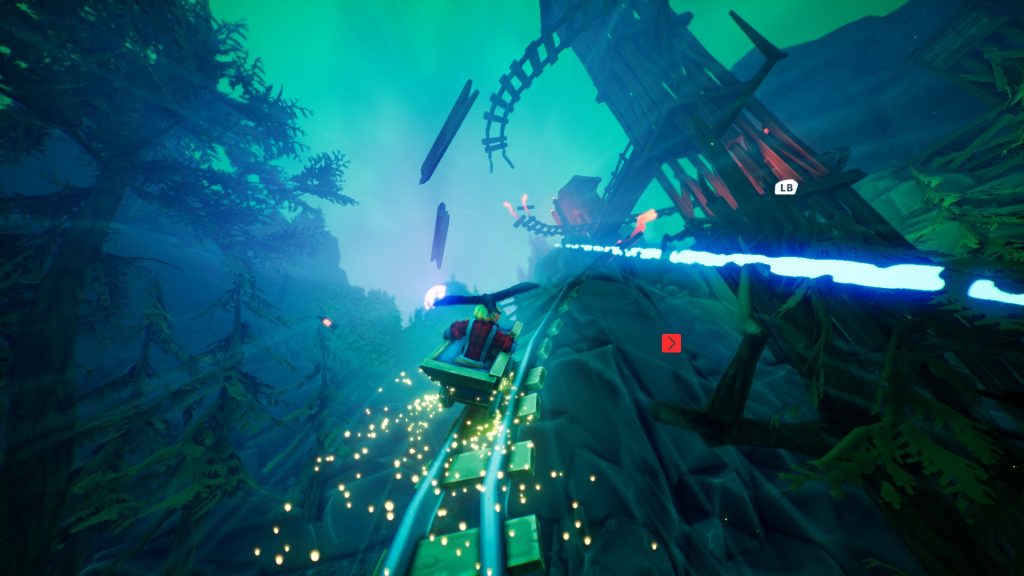
The gameplay of Pumpkin Jack is as hollow as his head. While level design is imaginative, and has a great deal of variation in platforms and surfaces to scale, Jack’s handling feels off. This is due to several small factors working against him. Jumping is one of the crucial pillars in a platformer, and when Jack leaps he feels floaty.
The feed-back when making jumps and double-jumps feels off and unpolished. Jack is able to rotate in mid-air by spinning the movement analogue stick. Even the slightest nudge will make him turn while airborne, which never feels natural. Most gaps are never difficult to clear, but grabbing ledges is not always reliable.
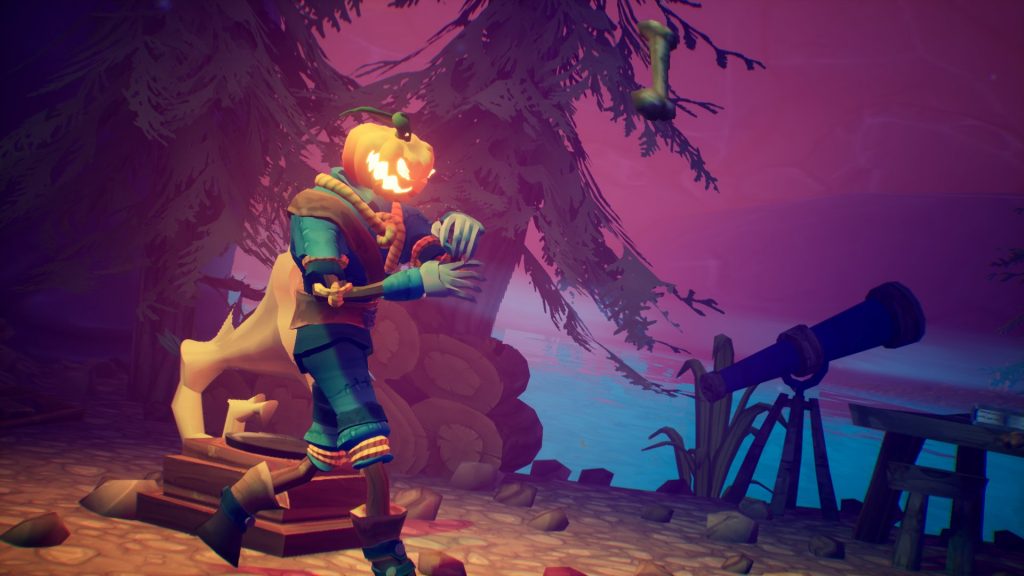
When not jumping over gaps or pits, Jack will likely be getting into tussles. Combat is the weakest aspect of Pumpkin Jack; there is no skill ceiling or finesse at all. Most encounters rely on Jack dodge rolling to avoid uninterruptable enemy strikes, and smacking them with a melee weapon.
Every weapon Jack obtains at the end of a level has a different style to it. Generally, the newest weapon makes the previous ones obsolete, with the exception of the sword. Jack can’t lock-on, and his hits feel really weak. The feedback lacks strong enough sound design, and the enemies barely react.
Thankfully, Jack’s attacks can be canceled by rolling. This prevents him from being left open after his limp strikes, and he’ll need this since he is usually fighting groups of threats. Expect off-screen turrets firing cheap shots that lack a discernible audio cue.
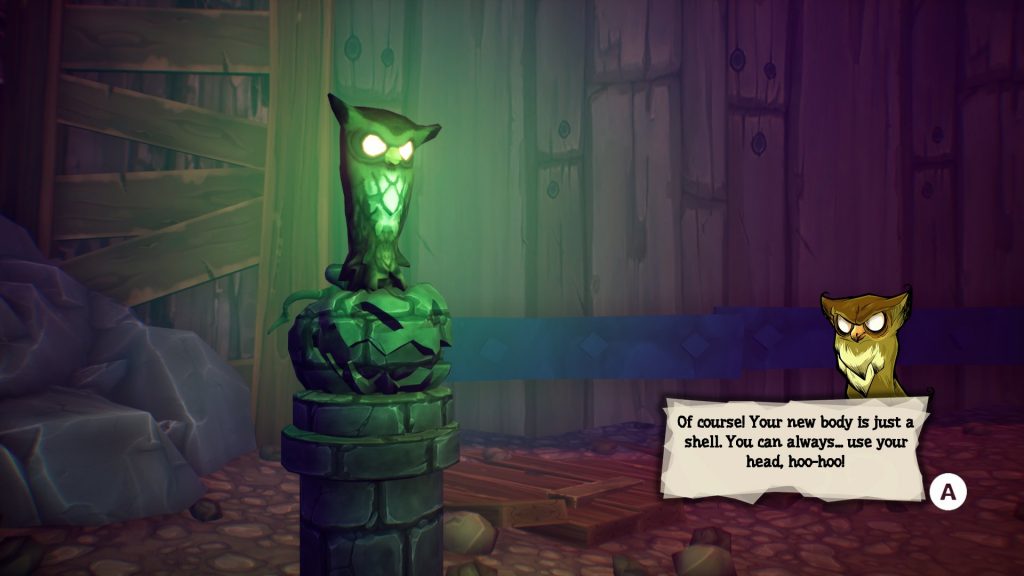
Humans react to sound quicker than we react to visual cues. This makes audio very important in action games, especially in situations when there are many guys running around trying to sucker punch you. Not that Pumpkin Jack is challenging, (it’s laughably easy) but the lack of attention given to feedback makes fighting feel so unpolished.
There is no strategy, since enemies just bum-rush you and you roll out of the way of their wind-ups. If you get hit, health gets restored by destroying the many breakable objects that festoon the environment, or killing basic grunts. Fighting just becomes an annoyance, and is much better utilized during bosses.
Jack’s combat prowess is pathetic. However, the developer does have a keen eye for puzzle design, and implements this philosophy into some of the boss encounters. A large ogre in the burning castle stage is seemingly invincible, but is stupid enough that he can be baited into attacking some explosives. Moments like this were more stimulating than tirelessly pounding generic fodder.
What Pumpkin Jack lacks in engaging battles, it makes up for in variety. Stages are lengthy and dense with gimmicks which keep them interesting. Sometimes Jack might be doing a mine cart sequence, and another level might have him riding a spectral horse through a forest. Every stage has a set-piece to make them stand out from each other.
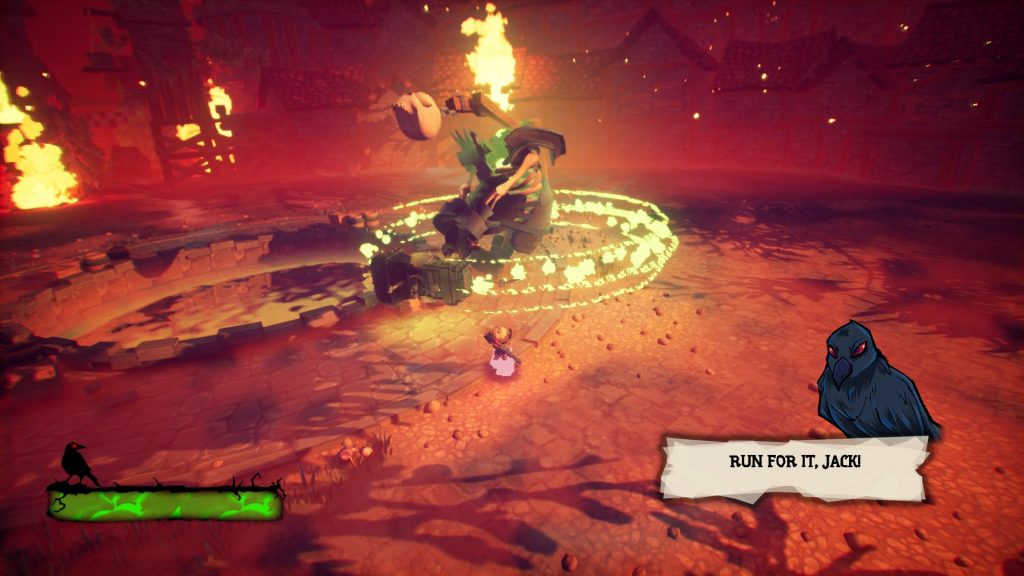
The levels themselves are varied, with plenty of vertical level design and gauntlets of traps to avoid. There is always something going on to mix up the action, keeping you on your toes to be ready for whatever comes your way.
Sometimes your reflexes can take a break, and Jack will be required to remove his head for puzzle-centric sequence. As a rolling pumpkin, his abilities are extremely limited, and the game design takes on a minigame format. Some involve light memory challenge, a version of whack-a-mole, an elaborate maze of switches and doors, and more.
Replay value is very low unless you really want to replay stages to try to find all crow skulls to buy all the skins. The one saving grace to replaying levels is that it is interesting to bring late game weapons like the scythe to the first areas and get more use out of them.
Each weapon does have its own fighting style, and it is a bit of a waste that some weapons are outclassed and useless later on. It would have been fun to use the basic shovel to swat back enemy missiles back at them.
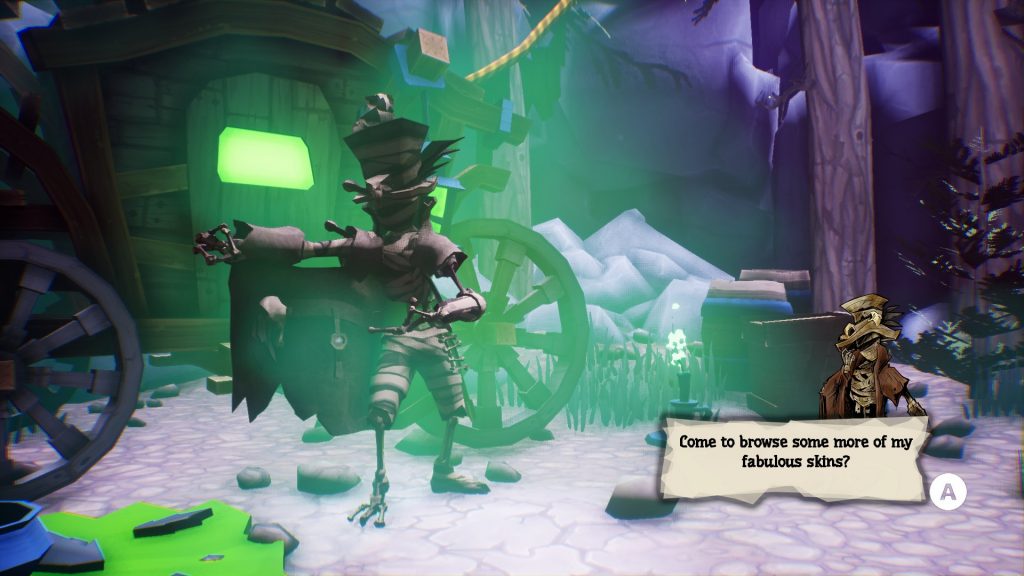
For all of Pumpkin Jack‘s faults, a lack of variety is not one of them. It is easily the game’s most defining aspect in a deluge of averageness. There is some light exploring in the levels that involves seeking hidden collectibles, which function as currency to buy alternate skins.
The only downside to this is how few skins there are to buy, and that skins do not offer a substantial change to the gameplay. No matter what, Jack’s HP is always the same, and he always deals the same amount of damage.
This is normal for skins, but Jack never gains new abilities other than the weapons he acquires at the end of stages. He never can get a triple-jump, never learns to dash and his bird-based projectile attack will always have the same lengthy cool-down. Pumpkin Jack is a one and done kind of game.
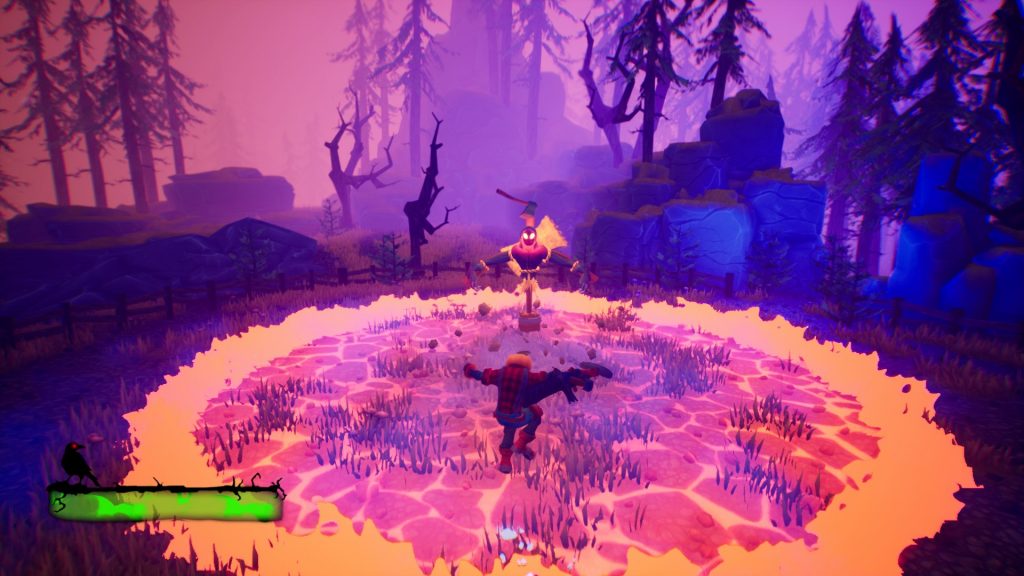
The developer surely proved his artistic ability with the visuals. Pumpkin Jack looks excellent and runs very smoothly on Xbox One X. The world is lively and rich with varying temperature hues. The lighting was given great care to establish a cool and brisk fall atmosphere.
Textures have a painterly quality about them. At times, Pumpkin Jack looks like a living illustration with all the stylized character designs. The visuals radiate personality where the writing does not.
The aforementioned weak sound design is unfortunate, but the music is fitting. There is a big emphasis on theremin’s, “whooohs,” and plucky string instruments. The tone suggests mischief and deviltry afoot. It is a bit one-note and most of the music blurs together, but nothing seemed out of place or distracting.
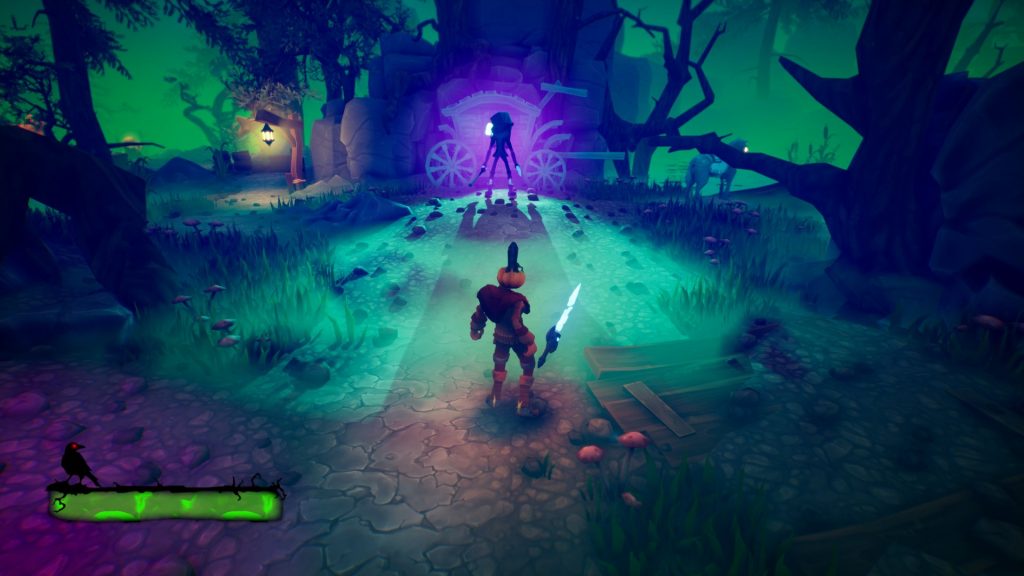
Pumpkin Jack is ultimately a shallow game that fails to live up to the kind of 3D action platformers it was influenced by. It may be impressive for a one-man effort, but it still feels like it was made by one man. Games are complicated to make, and having more people involved can spark creativity where ideas can bounce off each other.
Pumpkin Jack was reviewed on Xbox One X using a review code provided by Headup Games. You can find additional information about Niche Gamer’s review/ethics policy here.



